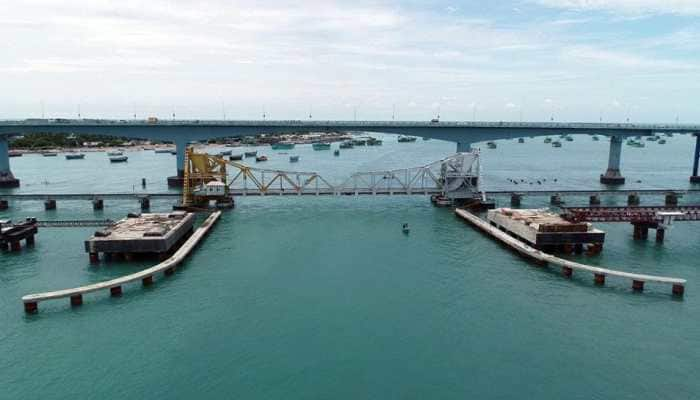Rwanda: From genocides to Africa's technology paradise
The streets which were empty two decades ago, unless for those who carried machetes, today witness young people walking around with laptops, smartphones and all sorts of gadgets: the new weapons with which the Rwandans want to rewrite their history.
Trending Photos
)
Kigali: The streets which were empty two decades ago, unless for those who carried machetes, today witness young people walking around with laptops, smartphones and all sorts of gadgets: the new weapons with which the Rwandans want to rewrite their history.
"The generation that has not experienced the 1994 genocide, in which nearly 800,000 people were killed, now considers that technology represents development, progress and success in life," Aphrodice Mutangana, an entrepreneur in kLab business incubator in Kigali, told Efe news agency.
The imagination of young people visiting kLab for the first time is enticed with pictures of diaphanous offices, decorated with bright colours with intersecting cables, laptops, vending machines for snacks and foosball tables. They come without work, but with good ideas.
"The K is for the word 'knowledge' although some believe it is for Kagame (Paul Kagame, the President of Rwanda)," joked Aphrodice, in a press interview during a trip organised by the International Women's Media Foundation (IWMF).
The Rwandan government is one of the main factors allowing this space for software developers, where they can surf the internet and receive free advice.
Joseph Manzy is a success model, as he and his partners have created a mobile application that helps dairy farmers, one of the main industries in the country, to connect with the market to increase their sales.
Mutangana himself collected $1.7 million for genocide survivors through "Incike", an SMS application, and created "MHealth", another application for health literacy, which collects symptoms of common diseases in a country that had less than 200 medical specialists just three years ago.
The initiatives of both Manzy and Mutangana adds to the government plan "Vision 2020", which promotes that information and communications technology will get Rwanda out of poverty.
The government's goal is to transform Rwanda into a middle income economy, which is currently being achieved rapidly, as the average income per capita has increased since 2000 from $230 to $ 630 while poverty has been reduced by 20 percent, according to the World Bank.
Although the plan aims to reach an average income of $900 and wants to reduce poverty by 30 percent, life expectancy goal has already been accomplished, to reach 64 years.
The shift from an agrarian economy into one that depends on information and knowledge is the key to this revolution, which is forged by investing in infrastructure, expansion of telephone and internet services and the use of English as an official language.
Aside from the aspirations of kLab, the majority of the people of Rwanda, that wants to be the technology hub in Eastern Africa, work on hills in bananas, sorghum or tea plantations, for monthly wages that do not exceed 30,000 Rwandan francs (about $44).
The government; however, assures that a brighter future is waiting for younger generations, as information and communications technology so far represent 3 percent of the Rwandan GDP, and is regarded as the best guarantee for the future.
According to a report by the World Economic Forum, Rwanda is the first country to implement policies which promote information and communications technology for social and economic transformation.
"All of us, our generation, we want development, progress, we do not want to be as we were before. We want solutions for Africa and for Rwanda," Mutangana added.
Stay informed on all the latest news, real-time breaking news updates, and follow all the important headlines in india news and world News on Zee News.
Live Tv







)
)
)
)
)
)
)
)
)
)
